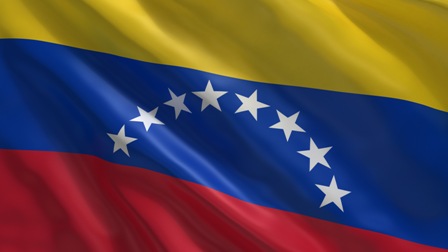|
|
||
|
OAS ANTI-CORRUPTION MECHANISM ADOPTS REPORT ON VENEZUELA
At its Twenty Fifth Meeting, held March 16 – 20, 2015,
the Committee of Experts of the Follow-up Mechanism for
the Implementation of the Inter-American Convention
against Corruption (MESICIC) adopted the Venezuela
report on the implementation of this treaty in the
framework of the Fourth Round of Review of the
Mechanism. This is the fourth such report that has been
issued by the MESICIC in relation to Venezuela’s
implementation of this Convention.
The review focused on the structure, operation and
results of five principal oversight bodies in Venezuela
responsible for preventing, detecting, punishing and
eradicating corruption: the Office of the Comptroller
General (Contraloría
General de la República - CGR), the Public
Prosecution Service (Ministerio
Público - MP), the Supreme Court of Justice (Tribunal
Supremo de Justicia - TSJ), the National
Superintendency of Internal Audits (Superintendencia
Nacional de Auditoría Interna - SUNAI), and the
Ombudsperson’s Office (Defensoría
del Pueblo - DP). The progress made by Venezuela in
relation to the recommendations of the First Round of
the MESICIC was also reviewed.
In carrying out this review, Venezuela’s response to a
questionnaire was taken into account, as well as
information gathered by the Technical Secretariat and,
as a new and important source of information, an on-site
visit conducted from September 30 to October 2, 2015.
Members of the review subgroup for Venezuela, comprising
of Haiti and Peru, participated in this visit, along
with Technical Secretariat of the MESICIC. Information
furnished by Venezuela was clarified and expanded during
this visit, and the opinions of civil society
organizations, the private sector, academics, and
researchers on issues of relevance to the review were
heard.
Some of the recommendations formulated to Venezuela for
its consideration in connection with the aforementioned
bodies are, among others, the following:
With regard to the Office of the Comptroller General
(CGR): strengthen interagency coordination; standardize
fiscal control mechanisms for all entities and agencies
of the public administration; evaluate the time limits
for audits; implement a warning system in Online Net
Worth Disclosure System to enable real-time
identification of possible discrepancies; and strengthen
the institution by providing it with the human,
technological, and budgetary resources that it needs
properly to carry out its work in the area of
prevention, detection, and investigation of acts
corruption.
In relation to the Public Prosecution Service (MP):
update the institution’s Personnel Statute; hold public
competitive examinations for entry to service in the
institution; create the position of Anticorruption
Prosecutor in the MP; strengthen the MP by providing it
with the necessary human and budgetary resources for the
Anticorruption Rapid Response Prosecution Unit (FRICC)
to expand its activities to the regional sphere within
the country; and strengthen interagency cooperation
mechanisms between the MP and the principal and
auxiliary criminal investigation bodies.
As to the Supreme Court of Justice (TSJ): harmonize
Article 64 of
the LOTSJ with Article 270 of the Constitution
concerning the nature of the Judicial Nominations
Committee [Comité
de Postulaciones Judiciales]; implement the
“Consolidated Agenda” system in all states; and make
public the annual performance reports of the judiciary
on the TSJ website as well as through such other means
as are deemed appropriate to put this information within
the public’s reach.
With respect to the National Superintendency of Internal
Audits (SUNAI): resume the holding of merit-based
competitive examinations to recruit personnel for the
institution; conclude the revision of the Organizational
Model and the Organization Manual of the SUNAI, as well
as of all its other manuals and rules governing internal
procedures that are currently undergoing this process;
and issue a manual of internal control standards for the
SUNAI, based on the Manual of Standards of Internal
Control for a Generic Central and Functionally
Decentralized Administration Model.
With respect to the Ombudsperson’s Office (DP): complete
the design of
the staff recruitment subsystem for the DP; publish all
annual reports of the DP on the institution’s website;
and include topics to do with prevention of corruption
in training, workshops, and other outreach activities of
the DP; and disseminate the principles enshrined in the
Convention.
The good practices on which Venezuela supplied
information are, in brief, implementation by the CGR of
the online sworn statement of net worth; the training in
the area of anticorruption provided by the MP under the
National Plan on Crime Prevention to officials attached
to various oversight and prevention bodies;
implementation by the TSJ of itinerant circuit courts
and the Automated Judicial Case File Control System; the
training provided by the SUNAI in the area of citizen
participation and societal oversight of the citizenry
and public servants; and implementation by the DP of the
program “Haciendo
Comunidad para los Derechos Humanos” [Forging a
Community for Human Rights] with a view to implementing
public policies on human rights.
Some of the recommendations still pending from the First
Round address issues such as: : the introduction of
regulations on the system of prevention of conflict of
interest, impediments, illegibility, and prohibitions
relating to senior government posts; the use of sworn
statements of net worth, income, assets and liabilities
to detect and prevent conflict of interest;
strengthening the guarantees envisaged for the exercise
of the right to public information; consolidation and
systematization of provisions guaranteeing access to
public information in a single body of laws; and repeal
of so-called contempt (desacato)
laws.
During this Twenty Fifth Meeting, similar reports were
adopted for the Bahamas, the United States, Antigua and
Barbuda, and St. Kitts and Nevis, as well as the Fourth
Round Hemispheric Report. The Venezuela report adopted
by the Committee, as well as the aforementioned
countries, are available here.
For more information, please visit the Anti-corruption
Portal of the Americas.
|
Edition N° 227 - March 2015
The Mechanism For Follow-up on the
Implementation of the Inter-American
Convention against Corruption, known as MESICIC for its Spanish acronym, is a tool to
support the development of the Inter-American
Convention against Corruption through
cooperation between States Parties.
|
|

